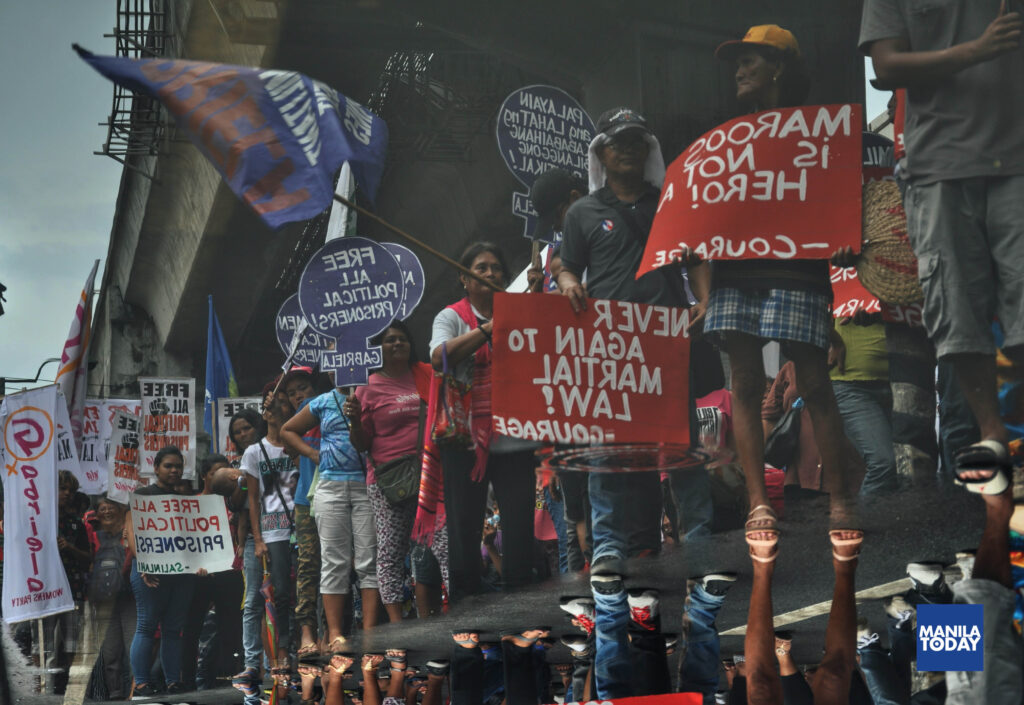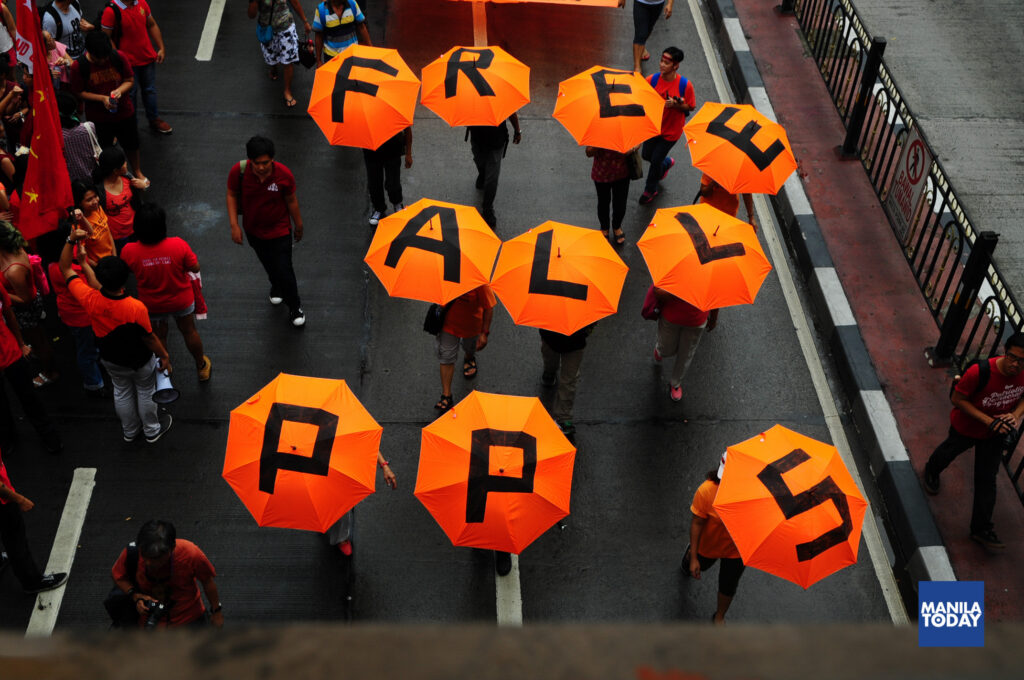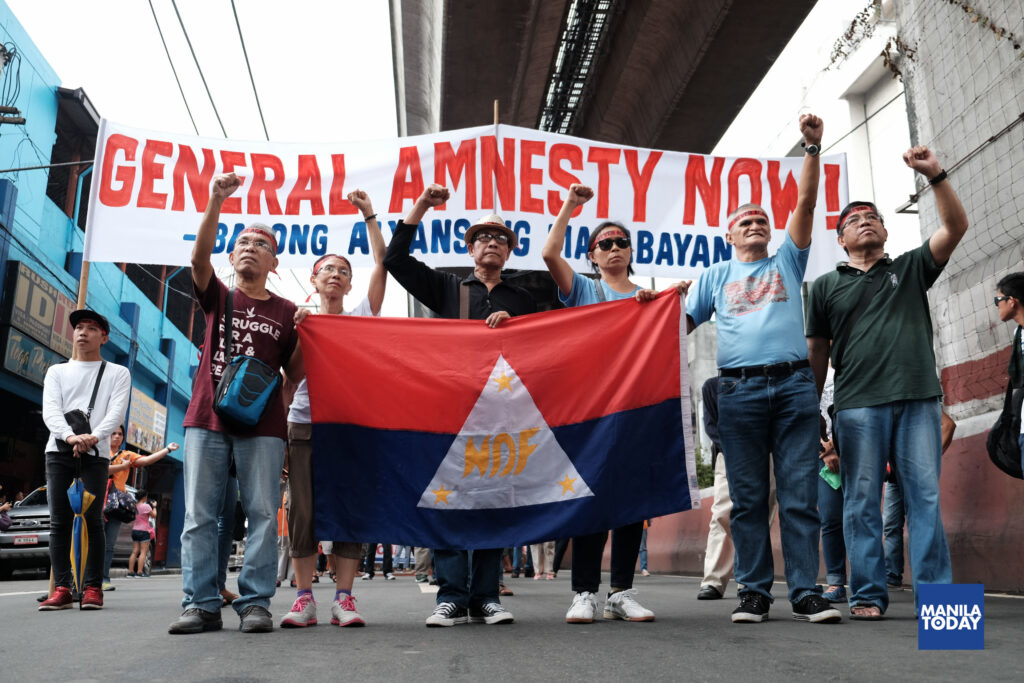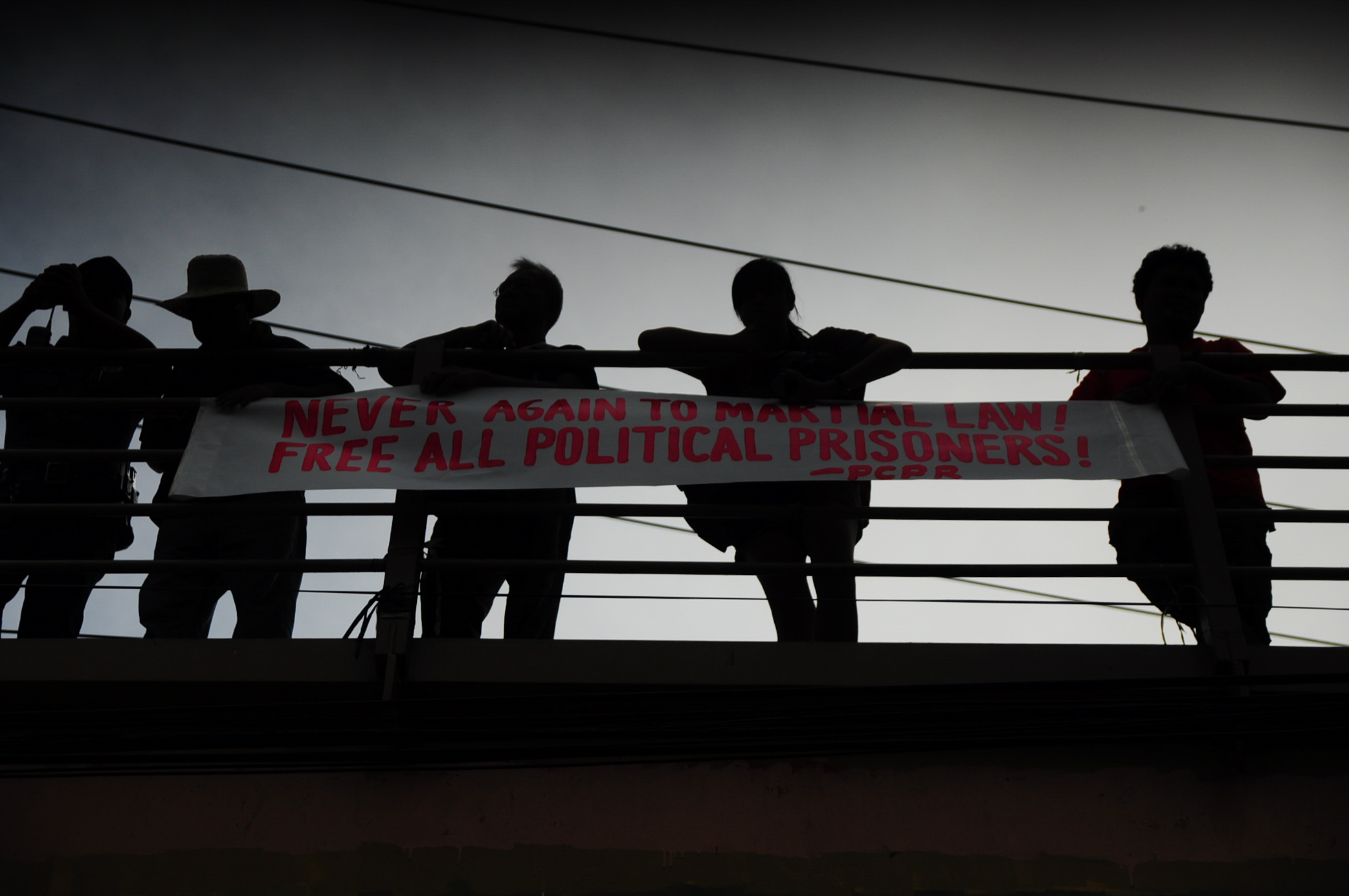“Having political prisoners that are detained on trumped-up charges and deprived of freedom are remnants of Martial Law,” said Bonifacio Ilagan, Vice-Chairperson of Samahan ng mga Ex-Detainees Laban sa Detensyon at Aresto (SELDA).
September 21, 2016 is the 44th year since Ferdinand Marcos declared Martial Law.

According to Jigs Clamor, Deputy Secretary General of Karapatan, political prisoners were arrested and detained because of their political beliefs.
“Patuloy na kinukubli ng estado ang pag-iral ng mga bilanggong pulitikal [The state continues to deny the existence of political prisoners],” said Clamor.
Karapatan, a human rights alliance, said that there were at least 120,000 persons imprisoned during Martial Law. Many of those arrested are victims of warrantless and illegal arrests.
As of June 30, 2016, there are 525 political prisoners detained in different detention facilities around the country. Human rights data would show that detention based on political activities and beliefs persisted past Martial Law.
Eighty percent of political prisoners are farmers accused of being members or supporters of the New People’s Army according to Joseph Canlas, Chairperson of Kilusang Magbubukid ng Pilipinas (KMP).
On the other hand, 18 National Democratic Front of the Philippines (NDFP) consultants, persons protected by the peace talks agreement JASIG [Joint Agreement on Security and Immunity Guarantees] have been released in time for the resumption of the Government of the Republic of the Philippines (GRP) and NDFP peace talks last August. Another two were released on humanitarian grounds. This was part of the goodwill measures and the commitment by the current administration of President Rodrigo Duterte for the resumption of the peace talks.
Call for General Amnesty
“We are calling for a general, unconditional amnesty for all political prisoners in the Philippines,” stated Ilagan.

Clamor also called for the release of three NDFP consultants detained at the National Bilibid Prison (NBP) after they have been convicted on trumped up charges.
The consultants detained at the NBP are Emeterio Antalan, Leopoldo Caloza, and Eduardo Sarmiento.
On the other hand, 50 of the political prisoners are old and sickly and 129 are detained for over a decade.
During the formal resumption of the GRP-NDFP peace talks in Oslo, Norway last August 22-27, the GRP panel committed to immediately recommend to President Rodrigo Duterte the issuance of an Amnesty Proclamation of political prisoners that the NDFP would list.
The content of the Amnesty Proclamation will be discussed by both parties in the next round of talks on October 6-10 in Oslo.
Freed consultants march in rally

Freed NDFP consultants joined the march. For most of them, it is the first time that they were able to join a march since the 1970s, the Martial Law decade itself.
“We are elated that we are free again to continue the struggle for national liberation and democracy,” said Ma. Conception “Concha” Araneta-Bocala, one of the recently freed NDFP consultants, addressing the crowd with other NDFP consultants.

Araneta-Bocala was a member of Samahan ng Demokratikong Kabataan (SDK) in UP Diliman. Shortly after the declaration of Martial Law, she went underground and joined the New People’s Army (NPA).
According to Martial Law veterans in the rally, it was the underground movement that continued to fight for liberation even under the oppressive circumstances of Martial Law, dealing blows to the dictatorship mostly through the armed uprising in the countryside.
Araneta-Bocala’s recent arrest was her 4th detention. She was arrested in Iloilo City on August 1, 2015. Her first arrest was a few days before Martial Law was declared. Her second arrest was in 1979 in Negros Occidental, a few days after she gave birth. She was subjected torture and sleep deprivation during her detention. She rejoined the underground movement when she was able to escape prison in 1980 along with seven other political prisoners in Camp Martin Delgado in Iloilo City. In 1986, she was part of the NDFP negotiating panel in Panay. She was again arrested in 1987 after the talks collapsed.
Araneta-Bocala encouraged the crowd, especially the youth to strengthen their ranks to continue the fight for freedom and change and to join the people’s democratic revolution.





























